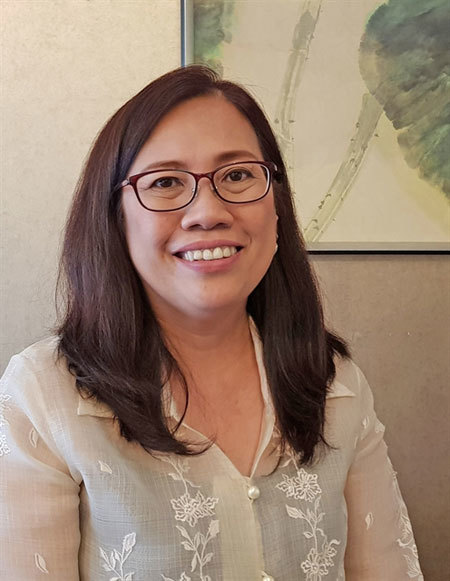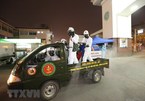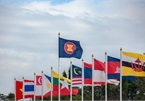As a collective, ASEAN represents nearly 650 million people, and with more people continuing to be infected with each passing day, the ASEAN, it’s people, economy and way of life are hit increasingly harder.
The ASEAN chair’s statement last February rightly called for “a cohesive and responsive ASEAN” in responding to COVID-19. The statement underlines the need to act together if ASEAN is to successfully tackle this crisis.
 |
| Lan Mercado |
The time to act is now. Indonesia is calling for a special summit on a regional COVID-19 strategy. The imperative of the hour is a well-articulated ASEAN response plan enacted immediately, addressing the health, humanitarian, social and economic needs of the ASEAN people in line with “anorchestrated response and collective action of ASEAN in curbing the spread of the disease,” as outlined in the ASEAN Chair’s statement.
The existing health care infrastructure in many member states, epitomised by long waiting queues and low-quality care, will need significant ramping up to cope with the pandemic. The ratio of doctors is at 0.8 for 1,000 people, and out-of-pocket expenditure for healthcare is at 44 per cent in the region’s 5 most populous nations.
Current conditions paint a grim picture for more than 36 million people in Southeast Asia who live in extreme poverty, earning under US$1.90 a day. A 20 per cent loss of income due to the current crisis may push 60 million people in East Asia and the Pacific into extreme poverty and another 160 million into surviving on less than $3.20 a day.
The crisis is likely to further imperil those already struggling with poverty, vulnerabilities, and discrimination disproportionately. Not only because they will struggle to get good quality health care, but also because they’re more likely to be first-line casualties of the ensuing economic crisis. Informal and daily wage workers and women and girls are likely to be hit the hardest.
However, given the unforgiving and undiscriminating nature of a pandemic, none of us - no individual, no community, no nation or region - is safe unless all of us are. Thus, the actions must be cohesive with ASEAN being the platform. Tackling issues of inequality - economic, gender, or otherwise - is critical to containing COVID-19. Prioritising assistance to those most at risk including frontline responders, wage and care workers who are largely women, refugees, and migrants are critical to recovery for all of us.
There are successes and lessons to be adopted. WHO’s figures indicate countries with stronger public health care systems like Singapore, Thailand, and Vietnam are more successful at case management while Indonesia has amped up health spending to the tune of $4.5 billion. As part of economic stimulus packages totaling $ 50 billion to date, Malaysia, Philippines, Singapore, and Vietnam are among the ASEAN countries that have significant social protection packages.
Swift action, that takes into account needs of all people, especially those likely to be hit harder, will demonstrate ASEAN’s commitment to “a peaceful and safe living environment for the people.” Not only the recovery from the pandemic but also the future of ASEAN’s member states hinges on decisive action on “ASEAN’s commitment to collectively respond to the outbreak of the COVID-19.”
To fulfill the commitments and protect the lives and ensures the wellbeing of its people, we urge the ASEAN:
To act in unison and serve as a platform for openly sharing knowledge and coordinating cohesive policy.
To set up a well-resourced response where no one is left behind through an ASEAN Emergency COVID Fund, pooling contributions from Member States and Dialogue Partners. Build capacities of weaker public health systems to protect the entire ASEAN.
To put in place stronger frameworks and fair and transparent structures to deal with transboundary risks now and to prevent future pandemics in the region.
To support small and medium businesses and workers by mobilizing resources from finance institutions for crisis response and its recovery.
We urge ASEAN member states:
To immediately upscale testing and treatment facilities and make them available to all people in need, especially poor and vulnerable communities.
Provide health care workers and others on frontlines with adequate protection, equipment, and support to deliver essential services.
Ensure all people affected, especially locked down communities, have enough food and essentials. All workers losing incomes require social protection.
Enact solutions for the special protection and wellbeing needs of migrant workers, displaced people, and others left marginalised.
Enact measures to promote women’s voices and leadership, deliver gender-sensitive assistance which enables them, and to prevent gender-based violence.
Engage with civil society in impact assessments and response implementation to make the needs of vulnerable groups heard and met.
In delivering a strong response, ASEAN will benefit from strengthening its mechanisms. The ASEAN Chairman’s statement tasked a coordinating role for its Health Sector mechanism on border crossing (i.e. consular services and transportation). However, a cohesive and holistic approach that looks at all aspects of the health and safety of the people of ASEAN is the need of the hour. The ASEAN Coordinating Center for Humanitarian Assistance (AHA Center) already has in place the mandate, network, and partnerships to rapidly enable an emergency response.
The ASEAN’s Health Sector and AHA Center can play a pivotal role in regional coordination and cooperation of a united ASEAN COVID-19 response. The ASEAN Business Advisory Council will prove to be a useful partner in engaging the private sectorin delivering essential services and supplies, and to support displaced workers in their value chains.
The ASEAN Coordinating Council (ACC) has been tasked to monitor the collective response, present subsequent recommendations, and report to the 36th ASEAN Summit in June. To put out the immediate fires of COVID-19 and to move beyond, the ACC must take into account the views of impacted communities, emergency responders, civil society and women’s rights organizations, and other partners in the region.
Meaningfully working together for a cohesive response backed up by an emergency fund, right policies, and open and honest collaboration will go a long way in suppressing the outbreak, especially for ASEAN’s least developed Member States as well as its most marginalized communities.
The ASEAN, whose 36th summit on April 8-9 was rescheduled as a result of the pandemic, holds the power to save millions of lives. Only with bold and decisive actions can we stop a catastrophe and shift irreversibly toward a sustainable, safer, and more equal Southeast Asia.
Lan Mercado*
*Lan Mercado, Regional Director, Oxfam in Asia

ASEAN strengthens measures to control COVID-19
Amid the complicated developments of COVID-19 with the number of new cases and fatalities surging, ASEAN countries have been taking measures to mitigate the outbreak.

Vietnam joins hands with ASEAN battle against COVID-19
All member countries of the Association of Southeast Asian Nations (ASEAN) have recorded COVID-19 infections.
 The number of active COVID-19 patients in ASEAN passed 10,000 at the beginning of this week.
The number of active COVID-19 patients in ASEAN passed 10,000 at the beginning of this week.